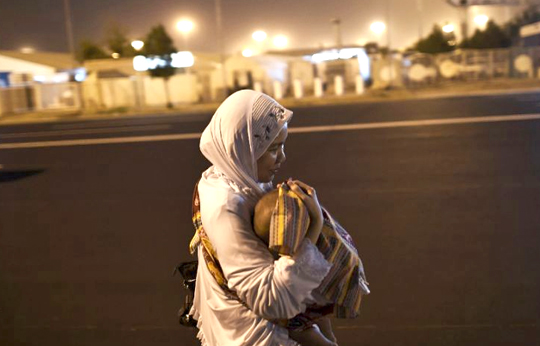Bareilly, Apr 8: As per the latest directive by the Hajj Committee of India, women who are pregnant at the time of filing application and complete four months of pregnancy in September when Hajj Yatra begins would not be allowed to proceed.
Even if they hide this fact and proceed on Hajj, they can be de-boarded from the flight if it is found that they have concealed the above fact, say Hajj officials. It is not clear who will check their pregnancy status in-flight.
Bareilly Hajj Sewa Samiti secretary Nazim Beg said, "This year the Hajj pilgrimage is scheduled to start in September. It has been decided that pregnant women wishing to go on Haj should make sure that they have not completed four months of pregnancy at the time of leaving the country, failing which they would be barred from the pilgrimage."
The directive has come from the chief executive officer of Central Hajj Committee, Ata-ur-Rehman, who has clearly asked such women to take back their money and cancel their seats.
When asked the rationale behind such step, Beg said, "It is in the interest of pregnant women. The first five days of Hajj are a gruelling test of stamina and endurance of Hajis who have to move from one spot to other in quick succession. Besides, they are also supposed to make several rounds of the holy places as a part of the ritual. The decision has been taken in view of the safety and health of pregnant women."
Bareilly Hajj Sewa Samiti president and Baheri MLA, Ataur Rehman, said, "In case of labour pain, the Haj committee has to make arrangements for admitting the woman to hospital, which adds up to the expenses of the committee. This is the reason why we would ask such women to undergo mandatory medical check-up to ascertain the status of their pregnancy."
Rehman added that the CHC has asked all centres in the country to convey the decision to all pregnant women who have applied for the Hajj pilgrimage this year.





Comments
If you find oneself in a situation where you stand lack of gems and coins,
you're usually welcomed to-use our pixel gun 3d coin hack to get more of coins and gems.
My web blog :: pixel gun 3d guide: https://www.twitch.tv/pixelgun3dhack/profile
I'm not sure exactly why but this blog is loading very slow for me.
Is anyone else having this problem or is it a problem on my end?
I'll check back later on and see if the problem still exists.
Stop by my webpage :: Cara pakai crystal x nasa: http://www.crystalx-yogyakarta.com/2014/11/cara-pemakaian-crystal-x-yan…
Though Hajj is an obligatory deed of Muslims, Islam / Sharia exempts the Hajj on the grounds of
Health, wealth, safety.
This rule needs to be implemented for protecting in general.
People should respond positively. The agency who made the law has no personal interest in it.
Amazing.....Non Muslims are commenting on this topic, where as Muslim readers are silent..... Health is most important....Allah has set two conditions for performing Haj..... It is only for those who are Finanially strong and Healthy people....
Add new comment